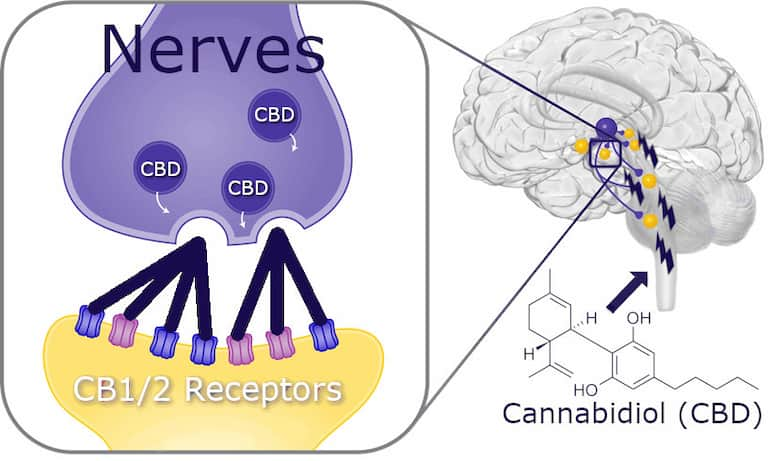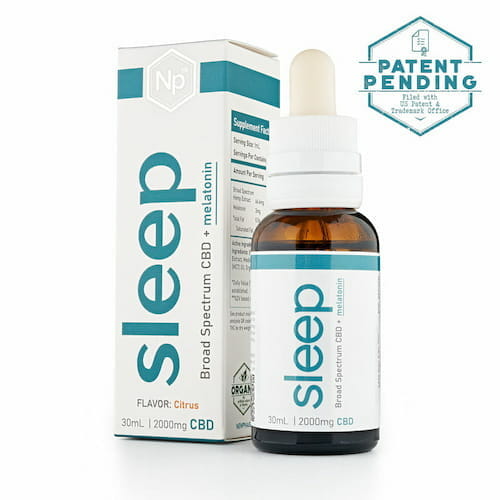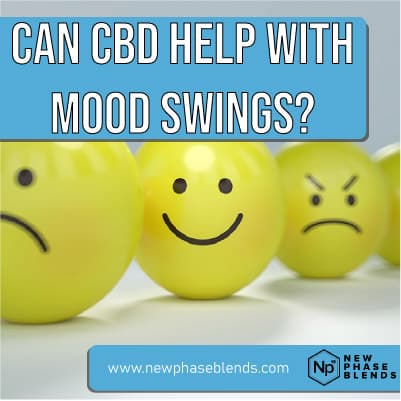Are you struggling with emotional ups and downs that impact your daily life? If you’re searching for natural solutions to stabilize your mood, you may have wondered about CBD. With growing interest in alternative wellness approaches, many people are turning to CBD products to help manage their emotional well-being, including those unpredictable mood swings that can disrupt everyday functioning.
In this comprehensive guide, we’ll explore the relationship between CBD and mood regulation, examining both scientific evidence and real-world applications. You’ll discover how CBD might influence your emotional state, learn about different product options, and gain practical insights for incorporating CBD into your wellness routine. As wellness specialists who’ve researched cannabinoid applications extensively, we aim to provide you with accurate, nuanced information about can CBD help with mood swings and its potential impact on mental happiness.
Understanding Mood Swings: Causes and Impacts
Before exploring CBD’s potential benefits, it’s important to understand what causes mood swings and how they affect daily life.
What Are Mood Swings?
Mood swings refer to rapid and intense changes in emotional state. Unlike the normal emotional variations everyone experiences, mood swings are typically more pronounced, sometimes occurring without clear triggers. They can manifest as sudden shifts from happiness to sadness, calmness to irritability, or contentment to anxiety.
These emotional fluctuations may be related to hormonal changes such as those occurring during menstruation, pregnancy, or menopause. Stress, lifestyle factors, underlying mental health conditions, sleep disruptions, and neurochemical imbalances can all contribute to mood instability. When persistent or severe, mood swings can significantly impact relationships, work performance, and overall quality of life. Many individuals experiencing these challenges seek solutions that don’t involve pharmaceutical medications or that can complement existing treatments.
How CBD Works in the Body: The Science Behind Mood Regulation
CBD (cannabidiol) interacts with your body’s endocannabinoid system (ECS), a complex cell-signaling network that helps maintain physiological balance. This system plays a crucial role in regulating numerous functions, including mood, stress response, and emotional processing.
The Endocannabinoid System and Mood
Your endocannabinoid system consists of naturally produced cannabinoids (endocannabinoids), receptors throughout your nervous system and body tissues, and enzymes that break down cannabinoids. This intricate system influences neurotransmitter release in the brain, including serotonin and dopamine—chemicals directly involved in mood regulation. When functioning optimally, your ECS helps maintain emotional equilibrium by promoting balance across various neurological systems.

CBD’s Potential Mechanisms for Mood Stabilization
Unlike THC (the psychoactive component in cannabis), CBD doesn’t directly bind to the main cannabinoid receptors. Instead, it works more subtly through multiple mechanisms that may contribute to mood stabilization. CBD inhibits the enzyme that breaks down anandamide, a mood-enhancing endocannabinoid sometimes called the “bliss molecule,” potentially allowing this natural compound to exert its positive effects for longer periods. Additionally, CBD activates serotonin receptors, particularly the 5-HT1A receptor involved in anxiety and depression regulation. Research suggests it may also reduce inflammation in the brain, which has been linked to certain mood disorders, while promoting neurogenesis in areas of the brain associated with emotional processing. These mechanisms suggest CBD may help create more stable mood patterns by enhancing the body’s natural regulatory processes rather than forcing artificial changes like some pharmaceuticals.

The Research: Evidence for CBD and Mood Regulation
Scientific interest in CBD’s effects on mood has grown significantly in recent years. While research specifically on mood swings remains limited, several studies provide relevant insights into how CBD might influence emotional states and mood-related conditions.
Anxiety and Stress Reduction
Research indicates CBD may help reduce anxiety, a common contributor to mood fluctuations. A 2019 study published in The Permanente Journal found that 79.2% of participants experienced anxiety reduction after CBD treatment, suggesting potential benefits for those whose mood swings are exacerbated by anxiety. Multiple animal studies demonstrate CBD’s potential to reduce stress responses and anxiety-like behaviors through its interactions with the brain’s serotonin system. This anti-anxiety effect could potentially help dampen the highs and lows of mood swings by moderating the body’s response to stressors that might otherwise trigger emotional fluctuations.
Depression and Low Mood
Evidence regarding CBD’s effects on depressive symptoms is emerging and shows promise for addressing the low mood phase of emotional cycling. Preclinical studies suggest CBD may produce antidepressant-like effects through serotonin receptor interaction, potentially helping to lift mood during depressive episodes. A 2018 review in Frontiers in Immunology noted CBD’s anti-inflammatory properties might help address depression linked to chronic inflammation, addressing a potential physiological contributor to mood disorders. While these findings are promising, they primarily come from laboratory and animal studies, with human research still developing in this area.
Hormonal Mood Swings
For mood changes related to hormonal fluctuations, preliminary research suggests CBD might offer some relief. Some studies indicate CBD may help with premenstrual syndrome symptoms, including mood changes, possibly by interacting with endocrine regulatory systems. Anecdotal reports from women experiencing perimenopausal and menopausal mood instability suggest potential benefits, though controlled clinical studies specific to these populations are still needed. The interaction between CBD and hormonal systems appears complex and warrants further investigation to fully understand how cannabinoids might modulate hormonally-driven mood fluctuations.
It’s important to note that while these findings are promising, most studies used controlled dosages under specific conditions. More comprehensive research on CBD and mood swings specifically is needed before definitive claims can be made about its effectiveness for various types of mood instability.
CBD Products for Mood Stabilization: Types and Considerations
If you’re considering CBD for mood management, understanding the different product types can help you make informed choices about which might best suit your needs and lifestyle.
Common CBD Formulations
CBD Oils and Tinctures These liquid extracts are taken sublingually (under the tongue) for relatively fast absorption into the bloodstream. The sublingual administration allows CBD to enter circulation more directly, bypassing the digestive system for quicker onset of effects. Oils and tinctures offer precise dosing capabilities through measured droppers, allowing for personalized adjustments based on your response. They typically provide moderate duration of effects, usually lasting 4-6 hours, making them versatile for both acute mood episodes and daily maintenance.
CBD Capsules Pre-measured doses in convenient capsule form provide longer-lasting effects but take longer to activate as they must pass through the digestive system before entering the bloodstream. This delayed onset but extended duration makes capsules particularly suitable for maintaining consistent CBD levels throughout the day, which may help prevent mood fluctuations rather than addressing them once they’ve begun. Many users appreciate the convenience and discretion of capsules, which integrate easily into existing supplement routines.
CBD Edibles and Alternative Delivery Methods Gummies and other edible products offer a tasty, discreet option with sustained effects similar to capsules. These products must undergo digestion before CBD enters the bloodstream, resulting in delayed onset but potentially longer-lasting effects that might help maintain mood stability over extended periods. Beyond edibles, emerging delivery methods like CBD beverages, sublingual strips, and even inhalable products provide additional options for those seeking specific onset times or effect durations to match their mood management needs.
Type: Pure CBD Gummies
CBD: 45mg Per Gummy
Features: Free Shipping, Money Back Guarantee
Full-Spectrum vs. Broad-Spectrum vs. CBD Isolate
The cannabinoid profile in your CBD product significantly influences its potential effects on mood regulation. Full-spectrum CBD contains all naturally occurring cannabis compounds, including trace amounts of THC (less than 0.3%). The “entourage effect” suggests these compounds work synergistically for enhanced benefits, potentially offering more comprehensive mood support than isolated CBD. Many mood-focused users report better results with full-spectrum products, though the trace THC content may be a concern for some.
Broad-spectrum CBD includes multiple cannabinoids and terpenes but no THC, making it suitable for those who want additional beneficial compounds without THC exposure. This option provides a middle ground that may offer enhanced effects compared to isolate while avoiding THC entirely. For those with particularly sensitive systems or who undergo drug testing, CBD isolate provides pure CBD with no other cannabis compounds. While it’s the safest option for those with THC sensitivity, isolate may offer less pronounced mood benefits than products containing the fuller range of hemp compounds that support the entourage effect.
Practical Guide: Using CBD for Mood Stabilization
Implementing CBD effectively requires thoughtful consideration of several factors, from finding your optimal dosage to determining the best timing for your specific mood patterns.
Finding Your Optimal Dosage
CBD doesn’t follow a one-size-fits-all approach, particularly when it comes to mood regulation. Individual responses vary significantly based on body chemistry, the nature of mood fluctuations, and the CBD product used. Starting with a low dose (typically 10-15mg) and gradually increasing allows you to identify your minimum effective dose while minimizing the risk of side effects. Keeping a mood journal to track effects at different dosages provides valuable data about your personal response, helping you refine your approach over time.
Patience is essential when using CBD for mood stabilization, as cannabinoids may require consistent use over several weeks to fully integrate with your endocannabinoid system and produce noticeable mood benefits. Consider factors such as your body weight, metabolism, and symptom severity when adjusting dosage, and remember that lower doses sometimes work better for mood regulation than higher amounts, particularly for anxiety components of mood swings.
Timing for Maximum Benefit
Strategic timing can enhance CBD’s mood-stabilizing effects by aligning cannabinoid activity with your body’s natural rhythms and mood patterns. For general mood maintenance, consistent daily dosing helps maintain steady cannabinoid levels in your system, potentially preventing extreme fluctuations before they begin. This approach works well for those with chronic mood instability or regular patterns of emotional changes.

For anxiety-driven mood spikes, taking CBD at the first sign of tension may help prevent escalation into more severe states by modulating stress responses early in the cycle. Evening doses might improve sleep quality, which indirectly supports mood stability by ensuring proper rest and recovery for the brain’s emotional centers. Conversely, morning doses can set a balanced foundation for the day, potentially reducing reactivity to stressors that might otherwise trigger mood changes.
Safety Considerations and Potential Side Effects
While generally well-tolerated, CBD isn’t without considerations that users should be aware of before implementing it for mood management. Possible side effects include fatigue, changes in appetite, and digestive issues, though these typically occur at higher doses than those commonly used for mood support. More significantly, CBD can interact with certain medications, particularly those metabolized by the cytochrome P450 enzyme system in the liver. This includes many common psychiatric medications that might already be prescribed for mood disorders.
Product quality matters tremendously when using CBD for sensitive applications like mood regulation. Look for products with comprehensive third-party testing for purity and potency to ensure you’re receiving accurate doses without contaminants that could potentially worsen mood issues. Always consult healthcare providers before starting CBD, especially if you have existing health conditions or take medications that might interact with cannabinoids.

Beyond CBD: Comprehensive Approaches to Mood Stability
For optimal results, consider integrating CBD within a broader mood management strategy that addresses multiple factors contributing to emotional wellness.
Lifestyle Factors That Complement CBD
CBD’s potential benefits are amplified when combined with lifestyle practices that naturally support mood regulation and neurological health. Regular physical activity naturally boosts mood-regulating neurotransmitters while reducing stress hormones that can trigger emotional volatility. Establishing consistent exercise habits may enhance CBD’s effects by promoting similar neurochemical changes through different pathways.
Adequate sleep hygiene practices directly impact emotional processing and regulation. Poor sleep exacerbates mood swings, while restorative sleep helps stabilize emotional responses. CBD may improve sleep quality for some users, creating a positive feedback loop that further supports mood stability. Similarly, stress management techniques like meditation, deep breathing, or progressive muscle relaxation work synergistically with CBD’s anti-anxiety properties to reduce overall stress burden and emotional reactivity.
Nutritional approaches that support brain health complement CBD’s neurological benefits. Omega-3 fatty acids reduce inflammation and support neurotransmitter function, while antioxidant-rich foods protect brain cells from oxidative stress that may contribute to mood disorders. A balanced diet that stabilizes blood sugar also prevents energy crashes that can trigger mood fluctuations, creating a more stable physiological environment for CBD to exert its balancing effects.
When to Seek Professional Help
While CBD may help with mild to moderate mood fluctuations, it’s not a replacement for professional care in certain situations. When mood swings significantly impair daily functioning, interfering with work, relationships, or self-care, professional evaluation becomes essential regardless of whether CBD is being used. Similarly, any thoughts of self-harm require immediate professional intervention, as this indicates a severity beyond what self-administered supplements can safely address.
Mood changes that coincide with other concerning symptoms such as sleep disturbances, cognitive changes, or physical complaints may signal underlying conditions requiring medical assessment. Those with diagnosed mood disorders requiring medical supervision should view CBD as a potential complement to established treatments rather than a replacement, and should always discuss CBD use with their healthcare providers to ensure safe integration with their treatment plan.
Conclusion: Is CBD Right for Your Mood Management?
As we’ve explored throughout this guide, CBD shows promise for supporting mood stability through its interactions with crucial neurological systems. Its potential to address anxiety, stress responses, and possibly depression symptoms makes it a consideration worth exploring for those struggling with mood swings. The research, while still evolving, points to several mechanisms through which CBD might help moderate emotional extremes and promote more balanced mood states.
However, CBD represents just one tool in the broader wellness toolbox. The most effective approach to mood management typically combines multiple strategies tailored to individual needs and circumstances. Understanding the interplay between physical health, sleep, nutrition, stress management, and neurochemistry creates a foundation for more comprehensive mood support that may be enhanced by thoughtful CBD use.
If you’re considering CBD for mood swings, start with quality products, realistic expectations, and preferably guidance from a healthcare provider knowledgeable about cannabinoids. With thoughtful implementation as part of a holistic approach to emotional wellness, CBD might become a valuable component of your mood management strategy, potentially helping you achieve greater equilibrium in your day-to-day emotional experience.
Remember that everyone’s body chemistry is unique—what works wonderfully for one person may produce different results for another. Patience, careful observation of your body’s responses, and a willingness to adjust your approach will serve you well on your journey toward more stable moods and improved mental happiness. The growing field of cannabinoid research continues to expand our understanding of how these compounds interact with our emotional regulation systems, offering hope for increasingly refined approaches to using CBD for mood support in the future.












